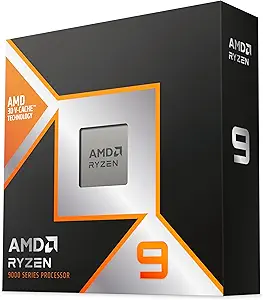AMD has unveiled its latest addition to the Zen 4 family, the Ryzen Embedded 7000 series processors. These socketed CPUs are designed for embedded and edge applications in the 60~105 Watt space. The Ryzen Embedded 7000 series processors offer significant improvements over the previous generation Ryzen Embedded 5000 series parts. They feature up to 12 cores and 24 threads, TDPs ranging from 65 to 105 Watts, support for DDR5-5200 ECC memory, up to 28 lanes on-chip for PCIe Gen5, and integrated RDNA2 graphics. AMD is committed to providing up to seven years of support for these processors. Linux, particularly Ubuntu, is the preferred operating system for these embedded processors.
The Ryzen Embedded 7000 series processors come with a range of models, from the Ryzen Embedded 7645 to the Ryzen Embedded 7700X. The flagship model, the Ryzen Embedded 7945, is a 65 Watt part with 12 cores, 24 threads, a base frequency of 3.7GHz, a boost frequency of 5.4GHz, and 64MB L3 cache. Unfortunately, there are no technical benchmarks available yet, but AMD claims significant performance advantages over Intel Raptor Lake on Windows.
The chipset options for the Ryzen Embedded 7000 series are the X600, B650, and X670. It is worth noting that these processors do not have Ryzen AI, although there is a possibility that future generations may support it on Linux.
Overall, the AMD Ryzen Embedded 7000 series processors offer a powerful and efficient solution for embedded and edge applications. With their improved performance and support for Linux, they are likely to find popularity in the embedded space.
Source: Phoronix.



